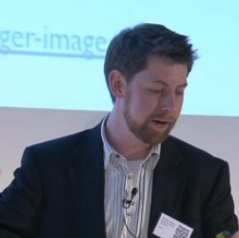|

|
José Luis Molina (Autonomous University of Barcelona)
Associate Professor at the Department of Social and Cultural Anthropology, Autonomous University of Barcelona. His current research uses social network analysis to understand the emergence and dynamics of transnational social structures in Europe. He founded the journal REDES (revistes.uab.cat/redes) and the research group egolab-GRAFO. His intellectual achievements include the development of mixed methodologies for combining personal networks with visualizations and in-depth interviews, the conceptualization of transnational social structures, and the study of both social and migrant forms of entrepreneurship. He has published 5 books, 15 book chapters and about 50 JCR/Scopus articles. He has supervised 15 Ph.D. theses.
He is currently President of the Ethics Committee of this University, after a decade of being member of the board of the same Committee for Anthropology and Sociology.
In the field of research ethics, he has co-authored with Steve Borgatti papers on Social Network Research on organizations, and has written a chapter on Ethics in Personal Networks Analysis in the forthcoming book by Chris McCarty et al. Personal Network Analysis: Research and Applications.
HyperEthics: A Critical Account
Are (social) scientists behaving really that “badly”? Do they need to be supervised by a growing body of Ethics Committees and its far reaching regulations? Such questions are just rhetorical because the response is as simple as the law must be fulfilled. Instead, the right question seems to be: How did we arrive at this situation? The response is at least threefold: First, some of the stricter regulations deriving from bioethics are applied to social science and humanities as if the type of participation and its risks are even minimally comparable (“informed consent”, the right to opt out, etc.); Second, there are objective interests in increasing bureaucracy, namely, professional careers, scarce jobs, and exemption of liabilities; Third, academics, who have been taught to behave ethically and in a disciplined manner, tend to accept without hesitation all kinds of bureaucratic and auditing requests as a further warranty of legitimization. These factors lead to what I have dubbed “HyperEthics”, i.e., hypertrophy of regulatory bodies supervising research-related behaviors. The label is especially ironic in a context where social media sites and telecommunication companies are systematically owning and collecting the majority of data on social interactions nowadays, but are not subject to the same regulations. Often, “we” (social scientists in a wide sense) want to behave ethically, irrespective of the domains of research, i.e., digital and/or offline. This ethos can only be fulfilled taking the best from regulations, research ethics literature, and IT solutions for privacy, and developing a self-regulative culture, as we have always done. If we do not care about the core values of science, i.e., to advance knowledge and technology for the wellbeing of human kind, who will? Markets? States? I am afraid not. Scientia gratia scientiae.
|
|

|
Bernie Hogan (Oxford Internet Institute)
Senior Research Fellow at the Oxford Internet Institute, The University of Oxford's interdisciplinary department focusing on the study of Internet and Society. His work examines how platforms manage identity and data as well as how we can represent the world through social networks. Dr Hogan has participated in the development of many social network visualization projects, such as NameGenWeb and CollegeConnect. The most recent, in conjunction with Northwestern University, is a platform for social network data collection called Network Canvas. His work is published widely in journals from Field Methods and Social Networks to Annals of The American Geographer, New Media and Society, and Energy Policy. He is currently working on a monograph on real names.
Indirect ties, indirect consent? An ethical dilemma made worse online
When collecting network data, we not only capture data on an individual, but on their relationships to other individuals. In many studies, the other individuals have not given informed consent to the researcher. This is the case in self-reported personal network studies. If informed consent is a pre-condition for the processing of personal information then virtually all self-reported network studies are in violation of standards of ethical research. One flimsy argument for these studies is that we are only getting details from “the respondent’s point of view”. The network analysis of digital trace data undermines this argument as the data was not solely from recall of respondents but from actions of the respondent and their alters.
Perhaps informed consent, on its own, is not the right approach for evaluating the legitimacy of social network studies? Drawing upon work in other domains of research I explore the issue of indirect or implied consent. We rarely think of indirect consent as being appropriate for personal information. Nevertheless, we routinely perform qualitative interviews where respondents denote names of others, albeit not in as systematic a fashion as in network studies. Much of our behaviour online would not make sense if we had to guard our identity from our established relationships.
In this paper I contend that we refer to a principle of harm minimization first and foremost. Instead of establishing deontological principles of indirect consent, we look to phenomenological and pragmatic approaches towards what names and identities mean in the context of establishing relationships. A pragmatic approach, while always provisional, helps to establish a basis for understanding how individuals make sense of their own needs to identify others. From this own need to identify others we can establish some boundaries for indirect consent while still making sense of social relationships in a way that minimizes harm and respects individual research subjects. |